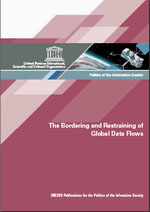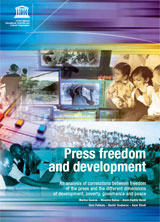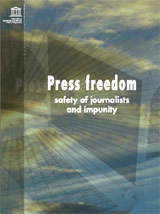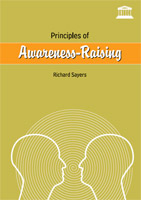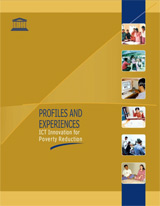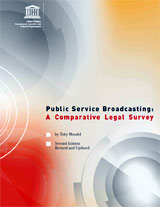This guide on the role of parents in the digital era was developed by the Moroccan National Observatory on Children’s Rights (ONDE), the UNESCO Office in Rabat and Microsoft Morocco. It provides advice on child cyber-protection to parents, teachers and people working with children.
Publication year: 2009
The central aim of this paper is to problematise the notion of partnership in development practice, with particular emphasis on partnerships in the field of Information and Communication Technologies for Development (ICT4D). It seeks to challenge taken for granted ideas concerning such partnerships, and it argues that those involved in such initiatives need to have in place formal concepts about their structure, organisation and intention.
Publication year: 2005
Visual testimonies of the changes that occurred during the 2nd half of the 19th century in Latin America and the Caribbean.
Publication year: 1998
This report illuminates the politics of the Information Society through focussing on the dynamics surrounding free expression and privacy. Many of the contentious policy areas in the Information Society hinge on privacy and free speech.
Publication year: 2004
Prepared by UNESCO’s Office in Santiago in cooperation with its partners, Toward non-sexist journalism: guidelines for communicating from a gender perspective in Chile is a response to the need to generate thought about journalism’s responsibility. The publication aims to raise awareness about gender perspective and to promote more inclusive journalism.
Publication year: 2010
This paper presents preliminary findings from a multi-sited qualitative study of poverty and information and communication technologies (ICTs) in India, Indonesia Sri Lanka and Nepal. It draws upon data gathered by 12 ethnographic action researchers working across 15 community ICT initiatives.
Publication year: 2007
This study is the outcome of a research project implemented by the Centre for Peace and Human Security (CPHS) at Sciences Po University with support by UNESCO. The research has sought to use various econometric tools and data from world-renowned institutions to investigate the relationship between free press and development and to ascertain a correlation between the two.
Publication year: 2008
The articles in this book, several by journalists with personal experience of harassment or violence, explore the problem from many angles. Although all agree that violence against journalists for doing their job is morally and legally unacceptable under any circumstances, there are differing points of view about whether journalists should be afforded extra legal protection under international humanitarian law.
Publication year: 2007
This handbook has been written to provide guidelines for developing process of awareness-raising. Theories, principles and techniques are offered in this manual based on the experiences of those who have developed practices that were successful and that met certain expectations. Rather than presenting generalizations, the handbook focuses on one event, the United Nations Literacy Decade 2003-2012.
Publication year: 2006
Professional journalism and self-regulation: new media, old dilemmas in South East Europe and Turkey
This publication compiles articles authored by distinguished experts and covers Albania, Bosnia and Herzegovina, Croatia, Montenegro, Serbia, the former Yugoslav Republic of Macedonia, Turkey as well as Kosovo (as defined by Security Council Resolution 1244).
Publication year: 2011
UNESCO has a long history supporting information and communication development in Asia. A considerable emphasis is being placed on the potential of new information and communication technologies (ICT) to positively impact on efforts to reduce poverty.
Publication year: 2004
This brochure presents in a simple and direct style an entirely up-to-date summary of the basic concepts relating to public broadcasting, which is vital to the functioning of democratic societies. It fits logically into the framework of UNESCO’s efforts to promote free and independent media throughout the world.
Publication year: 2001
This publication on Public Service Broadcasting best practices is the result of a series of discussions, conferences, and seminars that have been held over the past few years on the role and future of public service broadcasting. The main impetus for this publication came from the Communication and Information Sector of UNESCO, which provided the terms of reference for the sourcebook.
Publication year: 2005
This book on public service broadcasting explores the legal and regulatory systems governing public service broadcasters in eight different countries around the world, looking at what services they provide, the way in which their mandates are defined, their internal governance systems, mechanisms of oversight or accountability and how they are funded.
Publication year: 2011









